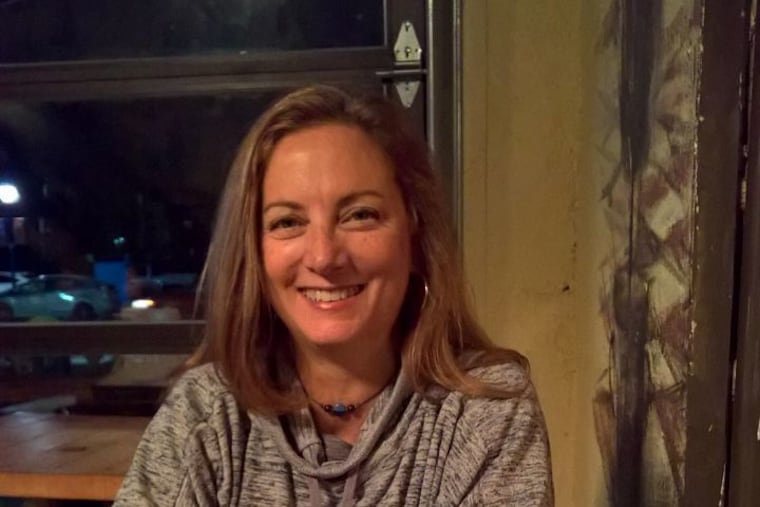Mother’s Day always reminds me that I am cancer-free — but still facing challenges
Some days, it seems like coping with the aftermath of my hereditary colorectal cancer is worse than treating the cancer itself.

A couple weeks ago, on the elevator up to my twice-monthly medical treatment, I broke down in tears.
I was tired, beat, mentally exhausted. In the seven years since my cancer diagnosis, I had never publicly cried. But on that day, the waterworks flowed freely.
An older couple entered the elevator, the husband supporting his wife, who was clearly very ill and couldn’t have been more than 90 pounds. Seeing my tears, they asked whether they could hug me. I managed to nod, and they embraced me fully, lovingly. They prayed for me, though I couldn’t utter a word through my tears. They made sure I got to my destination and we all wished each other goodbye, good luck, Godspeed.
Then my tears stopped. The kindness of strangers was somehow soothing and life affirming all at once. My battery had been recharged and I was ready to take on another challenge.
Seven years. Most people consider seven an unlucky number. Think about it: This digit has a movie, Seven Year Itch; a song, “Seven Year Ache.” There was even a Seven Years War.
But for cancer survivors, it’s a milestone. Better than five, better than three, seven years of survival seems a magical number.
May 11 marks seven years since the surgery that took my colon and my reproductive organs, too, all in the name of stopping the aggressive, inherited colon cancer that threatened to take my life.
Just like this year, the date fell on Mother’s Day weekend, one we celebrated in the hospital. This may sound bleak, but I was so thankful for the gift of another day to watch my three girls grow up – and to cheer me up with their lovable goofiness.
Sometimes I believe that I’ve adjusted entirely to my new normal. Then there are days when my desmoid tumors and fistulas – syndromes connected with my variety of colorectal cancer – are wreaking havoc on my body. In case you’re not familiar with these terms, desmoid tumors are abnormal growths in the connective tissue that give strength to muscles and bones. Fistulas are abnormal connections between body parts. These are just as painful as they sound.
At these times, I’m mentally exhausted and reminded that though my surgery was seven long years ago, these new developments have been a fact of my life for two seemingly unending years.
In my experience, familial adenomatous polyposis (FAP) colorectal cancer was in some respects easier to treat than the associated syndromes. Once my colon was removed, I was cancer-free. That miracle comes at a high price, as desmoid tumors love scar tissue. They thrive on it. For me, the tumors flock to my mesentery (blood supply to small intestines) and are, therefore, inoperable, and prone to grow. Enter oral chemo – even though the tumors are not actually malignant. Two years into that and I’m still waiting for them to get smaller. At least they aren’t much larger.
I’m thankful for the battle. If I weren’t battling, then I would have given up. I never thought of myself as a fighter until I had something huge to fight for – my life. I have come to believe that my genes contain not just cancer producing mutations but also inner strength and perseverance. I’m at the hospital often and each time I make eye contact with someone and see a person in distress, I smile because I know that’s what they need – a smile to encourage them to persevere on their journey.
Each Mother’s Day since my surgery, I remember all the challenges I stared down to get to this magical number of seven years cancer-free. It took a village to get me to where I am today, and that village is still by my side. I long for the day that I am medically challenge-free, no longer looking over my shoulder to see whether the next obstacle is catching up to me. Maybe that will be my 10-year reward.
Denise Teter lives in Kimberton, Chester County, with her family. She can be contacted at deniseteter5@gmail.com.